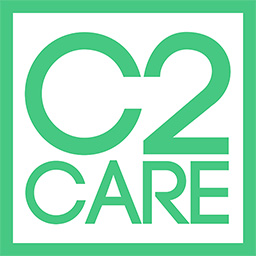Emotional dependence
You wonder if you could live alone? Do you find it unthinkable to make decisions alone? Do you sometimes get anxious at the thought that someone might leave you? For each new relationship you get involved at 300% even if you forget yourself? Perhaps you suffer from emotional dependence.

1. What is an emotional dependence?
You may have heard of it before, but what is an emotional dependency?
It is a psychological state that is defined by the excessive need for the presence and attention of another person near you. This need will be more important than one’s own psychological state or needs. Indeed, the needs of the other person, whether it is a close friend or a spouse, will come first even if it means giving up one’s own pleasure and happiness.
People with an emotional dependency tend to become intensely and quickly attached to the people around them. If they find themselves alone, a state of sadness, distress and anxiety will develop.
Have you ever met someone and quickly become attached to him/her, so afraid of losing this person that you would do anything for him/her? Does this happen to you regularly when you meet new people?
An emotionally dependent person always needs to be reassured by the presence and love of the other person.
NOTE: Emotional dependence is different from love or attachment to someone! This dependence will harm the health and well-being of the person suffering from it.
2. What are the symptoms?
It is important to understand that emotional dependence is in no way a mental illness or a medical diagnosis. It is rather a psychological functioning that leads to behaviors and emotions that may be inappropriate to situations.
Certain signs can lead one to believe that he or she is suffering from an emotional dependency:
- The fear of being abandoned
- Constant need to be in a relationship: you tend to constantly seek out relationships. You are very quick to create romantic relationships or even friendly relationships.
- Constant need for attention from others: This constant need for attention from others reassures you and gives you the impression that it will always be with you. It makes you feel important.
- Constant need for reassurance: Out of constant fear of being abandoned, you have a constant need to be reassured by the other, that he/she will stay with you.
- Neglect of one’s needs for the benefit of the other’s needs: as said before, you tend to always put the other before yourself, regardless of your own needs.
- Difficulty in ending a relationship
- Excessive jealousy for fear of being abandoned for another person
- Tendency to isolate yourself from others to foster a relationship
You will surely have understood that emotional dependence will impact the relationships formed and can lead you to maintain abusive, toxic relationships…
3. Causes of emotional dependence
There is no one specific cause for the development of an emotional dependency. Causes can come from past experiences, such as in childhood. If you have experienced a relationship that was dysfunctional or abusive, you are more likely to develop an emotional dependency.
Despite the complexity of the causes of the development of an emotional dependency, we can find the most probable causes:
- Cause in childhood: A child who is raised in an environment in which he/she lacks attention and care, will tend to look for it later on but in an excessive way.
- Lack of self-confidence: If you have a lack of self-esteem, you may need to be reassured and accepted by others. These fears will lead you to become emotionally dependent on others.
- Trauma: Loss, abuse or rejection can lead to the development of emotional dependence.
- Attachment disorders: People with attachment disorders, such as anxious or avoidant attachment, may be more likely to develop emotional dependence.
4. Consequences of emotional dependence
Emotional dependency can have significant negative consequences on a person’s life. Some of the most common consequences include:
- Difficulties in romantic and friendship relationships:You present difficulties in establishing healthy and balanced relationships. They may be overly possessive, jealous or demanding, which can lead to conflict and break-ups.
- Mental health problems: You are more likely to suffer from mood disorders, anxiety, depression and eating disorders.
- Low self-esteem: You may feel worthless or unable to make decisions without the other person’s help.
- Substance dependency: You are more likely to become dependent on substances, such as alcohol or drugs, to cope with your emotions.
5. Treatment of emotional dependence
It is very difficult to get out of an emotional dependency alone. It is of course possible to be taken care of and to treat emotional dependence. To do this, you should not hesitate to consult a health professional to help you.
Cognitive-behavioral therapies
Among the most common therapies, we find the CBT (Cognitive Behavioral Therapy): These therapies will help you work on your emotions and dysfunctional thoughts. This therapy will allow you to regain autonomy in order to detach yourself from this excessive need for the other person and thus reduce your suffering. You will relearn how to create healthier relationships.
NOTE: The human being is a social animal for whom the need for the other is vital. The goal is therefore not to free yourself from a small form of emotional dependence
1st step of CBT:
First, the therapist will lead you to fill out a functional analysis grid through self-observation. This self-observation consists of taking the time to observe and note your thoughts, your emotions and your behaviors as precisely as possible. This will allow you to have a better visibility on your functioning and thus to better understand them. You will learn to manage your anxiety, your sadness, your anger… For this, different tools will be brought to you such as relaxation, meditation, mental imagery…
2nd step of CBT :
Afterwards, the therapist will lead you to expose yourself. Thus you will voluntarily put yourself in situations that make you feel the need for the other person, for contact… that is to say in situations that bring up negative emotions and thoughts related to your emotional dependence. The conditions of exposure are of course discussed with your therapist, in order to expose you gradually and not too abruptly.
3rd part of CBT :
Afterwards you will also work on the part of cognitions, that is to say your thoughts and expectations. The goal is to make the distinction between your expectations, the satisfaction brought, and the contribution of the other.
4th part of CBT :
In the CBT, we will also work on the behavior itself, especially on what is called assertiveness. This work will allow you to learn to live for yourself as well, to put your needs, your interests and your points of view more in front of you, by decreasing the anxiety linked to the emotional dependence.
Last step of CBT :
Finally, you will find a last step in the framework of the treatment through CBT, the work on the development of social relationships. Recreate healthier social relationships that fill us with more positive emotions. Begin to maintain social relationships in which your needs are as important as those of others.
Throughout the therapy you will also learn to be more autonomous, independent and to make your own decisions. To this end, various skills can be learned such as time management and problem solving.
You will also learn to set boundaries to protect yourself from behaviors that may be inappropriate, unsuitable and abusive.
To conclude:
In conclusion, emotional dependence is a complex emotional disorder that can affect a person’s relationships and mental health. It is important to recognize the signs of emotional dependence and seek help if necessary. With the help of a mental health professional, it is possible to overcome emotional dependency and develop healthy, balanced relationships.

